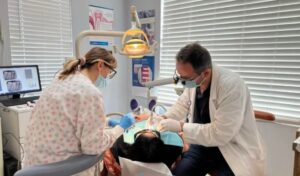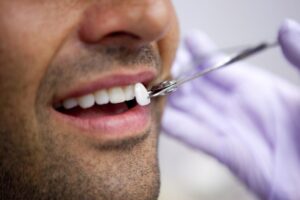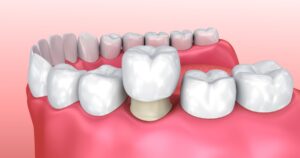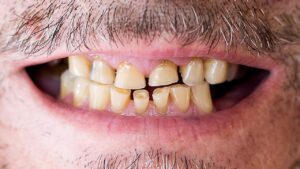
For decades, a large portion of the population has been working toward tooth replacement with full and partial dentures. However, complete and partial dentures made today appear more natural and comfortable than before. What distinguishes partial dentures from complete dentures, then? Which ones best suit your needs? Despite both types being dentures, they actually have many variations and meet very different needs. In this blog post, we will learn about both types of full and partial dentures in Wichita Falls.
Full or Partial Dentures
Any number of lost teeth in your mouth can be replaced at a reasonable price with dentures. They have a solid track record of accomplishment and deserve a spot on the list of providers for teeth reconstruction. Dentures, as you may know, are tooth replacements that are detachable. While partial dentures simply replace individual lost teeth to close gaps and enhance eating, full dentures are useful when a person is losing all of their natural teeth. Every patient receives individualized care for dentures.
Complete Denture
A complete denture can restore your smile if all of the teeth along your upper or lower jaw are gone, or if the teeth must be pulled due to extensive damage or decay. This technique, often known as a full denture, replaces every tooth in an upper or lower arch. There are two types available: a fixed full denture that attaches to dental implants, or a removable full denture that sits on the gums and is held in place using dental glue or suction.
Implant-Supported Denture
Implant-supported dentures, as the name suggests, are made to attach to dental implants that have been carefully positioned in your jaw and gums. Despite requiring minimal oral surgery to place the implants, some patients choose this approach since it eliminates the need for dental glue and provides teeth that are visible around the clock. Additionally, it helps avoid early wrinkling around the lips and jaw recession.
Partial Denture
For the replacement of one or more lost teeth, a partial denture works well. Like a bridge, a partial denture is cemented onto neighboring, healthy teeth. But unlike a bridge, it is detachable and fastened with clasps.
Flexible Partial Denture
A flexible partial denture is a discrete and pleasant alternative for replacing a tiny portion of lost teeth. With its lightweight, flexible base and gum-colored clasps, this alternative provides a secure fit that adjusts to your mouth’s motions. This kind of denture may also be taken out every day for cleaning.
Full and partial dentures, both are helpful ways to achieve the functionality of your oral cavity. Your dentist in Wichita Falls will weigh the pros and cons of each according to your needs and then recommend what suits you best.





